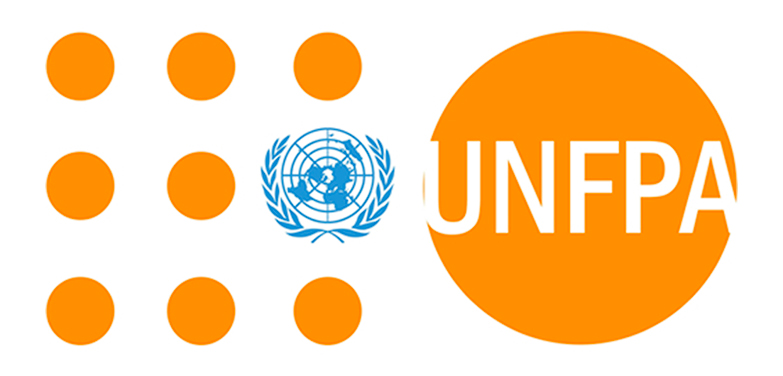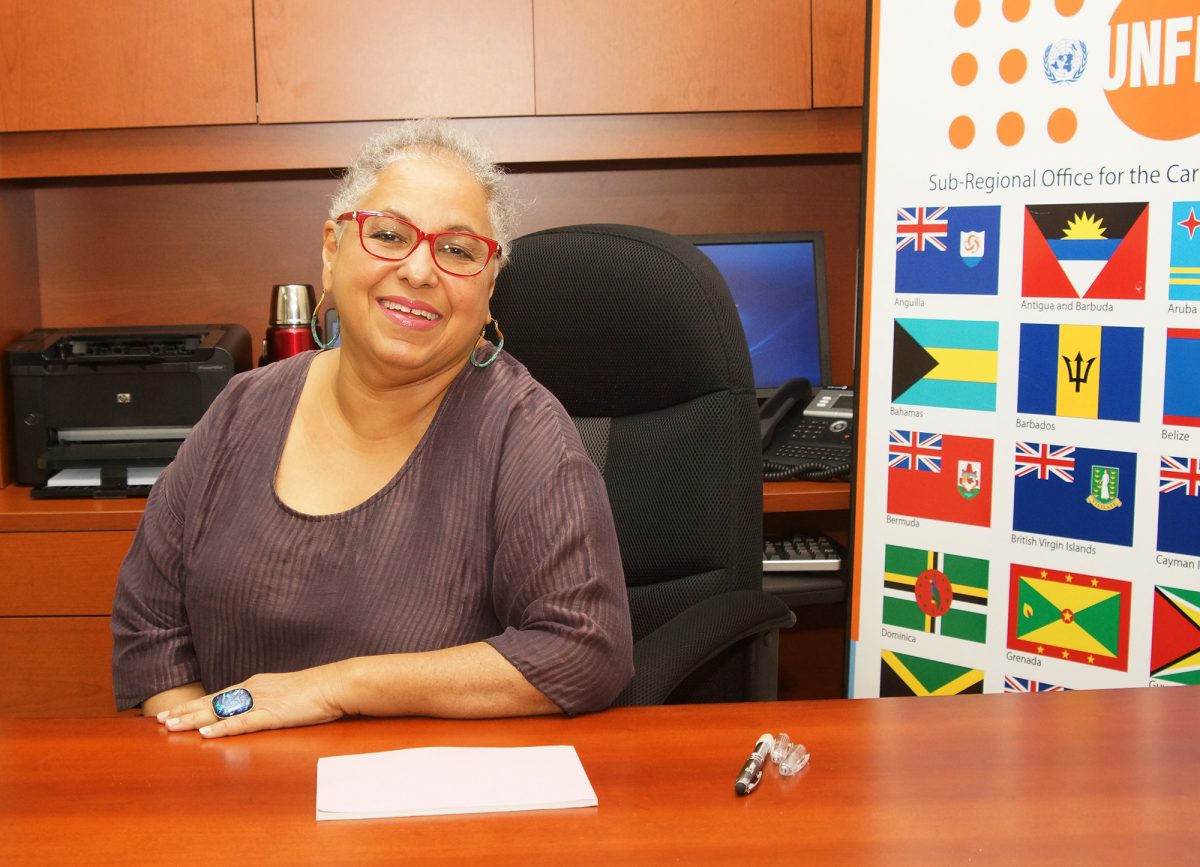Ensuring access to essential services for survivors of gender based violence
By Stabroek News On In Daily Features |
By Alison Drayton
Director and Representative, Sub-regional Office for the Caribbean, United Nations Population Fund
A cursory glance at newspaper headlines across the Caribbean paints a grim picture of the impact of gender based violence (GBV) in the region, particularly violence against women and girls (VAWG): ‘Woman hacked to death at home…’, ‘Cop convicted of raping teenager…,’ ‘Man charged with raping daughter’… ‘St James-based pastor charged with the rape of a teenage girl’… ‘Mother, step-father charged with inciting 13 year old daughter to have sex’… These are headlines that appeared in newspapers in Jamaica, Guyana and Trinidad and Tobago recently and there are many other similar media reports all over the Caribbean. Are we prepared to accept this as our legacy?
GBV, in particular VAWG, is one of the most widespread, persistent and devastating human rights violations. GBV refers to any harmful act perpetrated against a person’s will, and that is based on socially ascribed (gender) differences between males and females. It includes acts that inflict physical, sexual or mental harm or suffering, threats of such acts, coercion, and other deprivations of liberty. These acts can occur in public or in private. Recent studies undertaken in Grenada, Guyana, Jamaica, Suriname and Trinidad and Tobago also estimate a high prevalence in intimate partner violence and child sexual abuse, as well as a significant risk for women and girl survivors being killed by their intimate partners.
While prevention of these crimes lies mainly at the perpetrator’s hands, a number of these incidents (including deaths) can be prevented by service providers, who, with the proper training and resources, will be able to mitigate risks, protect survivors, and hold perpetrators accountable for their crimes. Essential services, such as health service providers are also considered as entry points for survivors of GBV, especially those who are suffering from Intimate Partner Violence and are being isolated from their support networks, or those who are unaware of having been subjected to GBV or don’t know where to find help. These entry points, when properly trained and provided with adequate resources, can become safe havens for survivors, and can ensure their protection and contribute to their empowerment and recovery by effectively linking them to protection services. Additionally, when services such as the police, justice mechanisms, health points and the social protection system work together to ensure that referral pathways are clear and responsive, survivors are better supported to navigate their options, without having to tell their stories to multiple actors and be re-traumatized all over again. When essential services are in place and follow a set of standards, service providers become more accountable to survivors.
As such under the EU-funded Spotlight Initiative Regional Programme, the United Nations Population Fund (UNFPA) and the Caribbean Community (CARICOM), have established the regional Essential Services Package Community of Practice (ESP CoP), a space that will allow for key regional institutions and National Gender Bureaus across the Caribbean, to establish standards and priorities in ensuring service provision for survivors of GBV is of the highest quality.
What is the Essential Services Package (ESP) for Survivors of Gender-Based Violence?
The Essential Services Package (ESP) is a guidance tool for the provision of essential services that will be available to all individuals who have experienced gender-based violence. These services fall under four sectors of work, namely: health services, social services, justice and policing services. When these services are in place and offered to all survivors and those at risk of experiencing GBV, the consequences of violence on the health, wellbeing, safety and resilience of survivors, can be mitigated, and can essentially save lives. When these services are ensured, survivors can be empowered and better supported in their recovery process, and in some cases they can contribute to breaking the cycle of violence.
How can a Regional Community of Practice (CoP) help survivors?
Etienne Wegner, in his seminal work, defines a community of practice as a group of people who share a common concern, a set of problems, or an interest in a topic and who come together to fulfill both individual and group goals. They develop a shared repertoire of resources: experiences, stories, tools, ways of addressing recurring problems—in short a shared practice.
As the United Nations Sexual and Reproductive Health Agency, it is UNFPA’s responsibility to collaborate with partners and stakeholders, like CARICOM, to ensure that services are carried out in safe, ethical and confidential ways, and in a manner that is non-judgemental or discriminatory. Essentially, ensuring survivors will not be put in danger. Unfortunately, a lack of coordinated services, human resource capacity and general mistrust in our systems results in underreporting, and the burden of care, healing and recovery often lies on the shoulders of the survivor – And this is one of the reasons for this collaborative effort to establish the ESP CoP.
The ESP CoP is co-chaired by CARICOM and UNFPA. It is a space for representatives of the health, social services, justice and policing, coordination and governance, humanitarian and education sectors at the regional level, including UN Agencies overseeing the implementation of the Regional Spotlight Initiative Programme. A space where these regional institutions will sit together with representatives of National Gender Bureaus across all countries and territories of the Caribbean, to exchange good practices, adapt global standards and facilitate south-south cooperation in the prevention and response to GBV. In addition, several civil society organizations have also been invited to participate in all relevant events and meetings, so as to ensure a common approach and understanding.
Following a virtual regional inception workshop held at the end of 2021, the first in-person meeting of the ESP CoP will be hosted in Trinidad & Tobago during the 24th and 25th of May, 2022. Members of the ESP CoP will embark on a two day working meeting to agree upon the key priorities and action plan for the coming year, based on the finding of a regional ESP Lessons learnt Study, currently being conducted by UNFPA.
UNFPA continues to be committed to achieve, by 2030, our three transformative results of zero unmet need for family planning, zero preventable maternal death, and zero gender-based violence and harmful practices. The ESP COP will undoubtedly contribute significantly to the achievement of the third zero here in the Caribbean and we can rest assured knowing that the success of this community of practice will redound to the benefit of survivors in our region.

